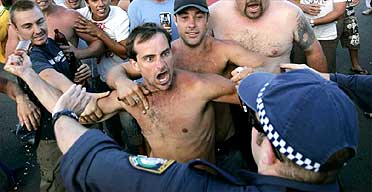 Online newspaper items: see the end of this outline (after the list of newspaper sources) for a "Virtual Vertical File" of items cached by the newspapers or by third parties.
Online newspaper items: see the end of this outline (after the list of newspaper sources) for a "Virtual Vertical File" of items cached by the newspapers or by third parties.


 Online newspaper items: see the end of this outline (after the list of newspaper sources) for a "Virtual Vertical File" of items cached by the newspapers or by third parties.
Online newspaper items: see the end of this outline (after the list of newspaper sources) for a "Virtual Vertical File" of items cached by the newspapers or by third parties.
|